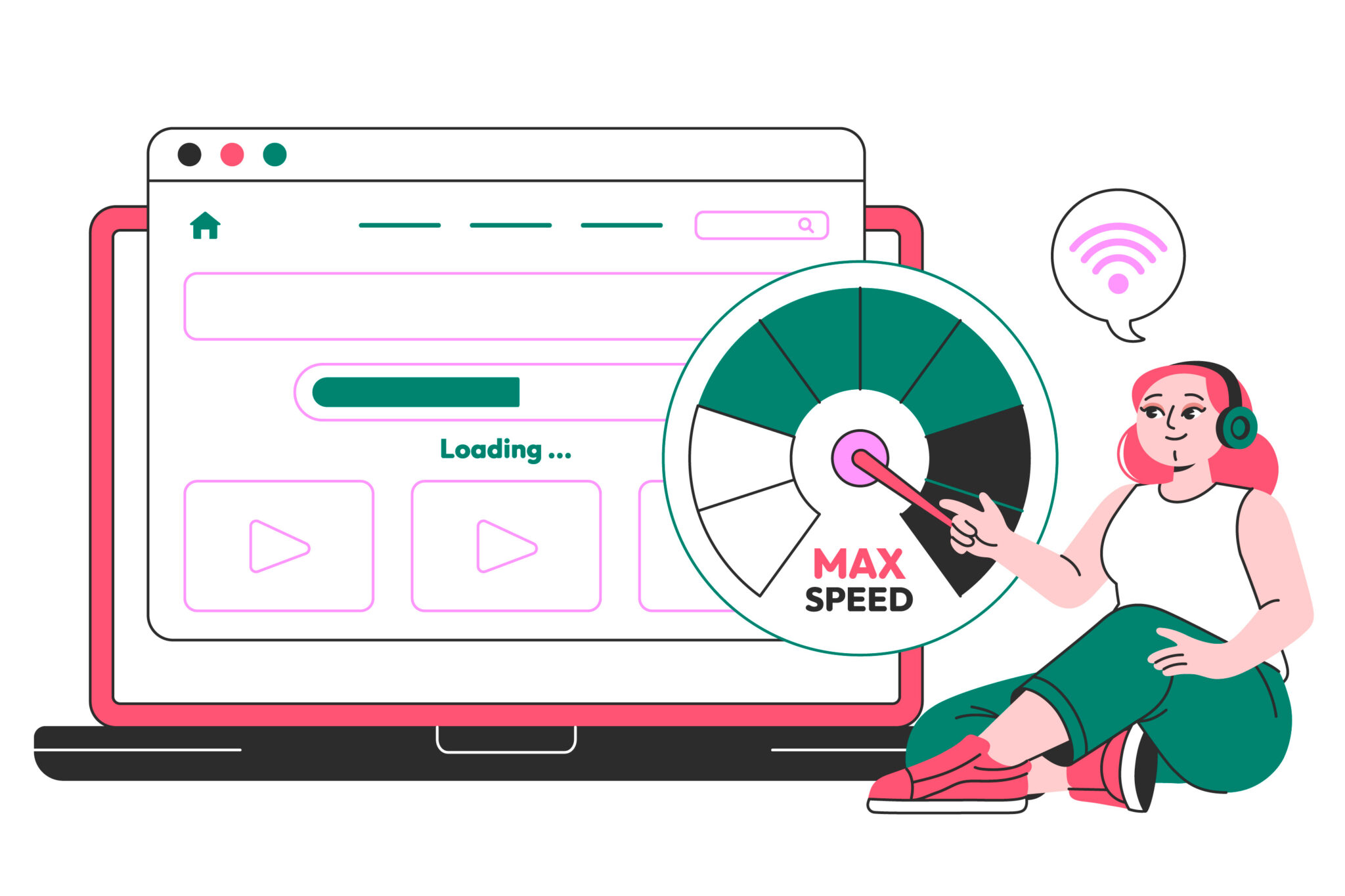
Website speed and SEO are directly connected. If your website is slow to load, your rankings and conversions will suffer. In today’s fast-paced digital world, users expect instant access—and so does Google. That’s why optimizing your website’s performance is essential to growing your online presence and attracting more leads.
How Website Speed Impacts SEO and Conversions
In the digital world, speed isn’t just a luxury—it’s a ranking factor. If your site takes too long to load, users leave. Worse? Google notices and ranks you lower. Understanding the connection between website speed and SEO is crucial for any business looking to grow online.
Whether you’re running a service-based business, real estate firm, or eCommerce store, improving website speed can lead to better search rankings, more traffic, and higher conversion rates.
Why Website Speed Matters More Than Ever
Studies show that:
A 1-second delay in page load time can reduce conversions by 7%
53% of mobile users abandon a site if it takes more than 3 seconds to load
Google uses page speed as a core part of its Core Web Vitals for SEO rankings
Speed affects user experience, bounce rate, and dwell time—all of which signal quality to search engines.
How Website Speed Affects SEO
✅ 1. Google’s Ranking Algorithm
Since 2018, Google has included speed as a mobile ranking factor. With the introduction of Core Web Vitals, performance metrics like Largest Contentful Paint (LCP), First Input Delay (FID), and Cumulative Layout Shift (CLS) now directly impact your search rankings.
✅ 2. Crawl Efficiency
A faster website lets Google crawl more pages in less time, increasing the likelihood that all your content is indexed and ranked.
✅ 3. User Engagement Signals
Google tracks how users behave on your site. If they bounce quickly because of poor performance, it signals that your content may not be relevant—even if it is.
How Website Speed Affects Conversions
Your website might be full of great content—but if it loads slowly, visitors won’t stick around to see it.
A fast site helps:
Keep visitors engaged
Improve trust and professionalism
Increase sign-ups, purchases, and form submissions
Common Causes of a Slow Website
Unoptimized images
Poor hosting or overloaded servers
Bloated themes or unnecessary plugins
Lack of caching or content delivery networks (CDNs)
Non-minified CSS, JS, and HTML files
How to Improve Website Speed and SEO
Here are proven strategies we use to optimize websites:
Compress and lazy-load images
Use caching and CDNs
Remove or replace heavy plugins
Minify CSS, JS, and HTML
Upgrade to faster, more secure hosting
Optimize for mobile and reduce layout shifts
Regular audits and speed tests can help you identify issues before they affect performance.
Tools You Can Use:
🌐 Google PageSpeed Insights
🌐 GTmetrix
🌐 Lighthouse by Google
Our Expertise in Speed Optimization
At MyVAGurus, we help clients across industries improve both website speed and SEO. We go beyond basic fixes and focus on:
End-to-end performance audits
Core Web Vitals compliance
SEO-driven speed enhancements
Ongoing monitoring and reporting
With the right optimization, your site won’t just load faster—it will rank higher, retain more visitors, and convert better.
Final Thoughts
If your site loads slowly, you’re losing both search traffic and potential customers. Investing in speed and SEO isn’t just technical work—it’s smart business.


